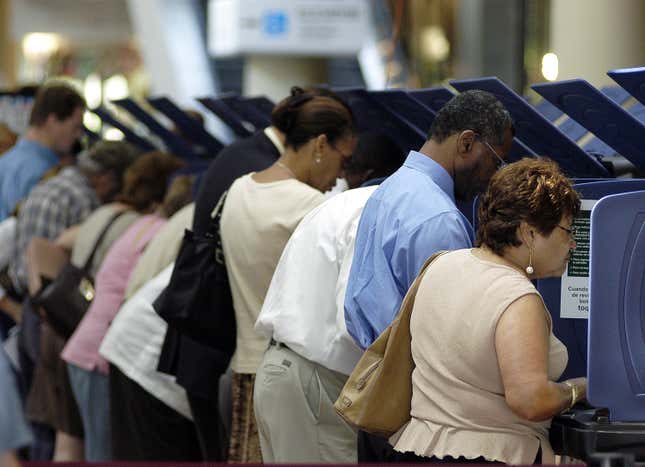
Fair Fight Action, a voting rights group founded by Stacy Abrams to address voter suppression, led a noble effort to restore 98,000 voters who were removed from the state’s voter rolls due to nonparticipation in any recent elections. Unfortunately, they were unsuccessful.
U.S. District Judge Steve Jones made a ruling in federal court, upholding the removal of these inactive voters under Georgia’s “use it or lose it” law. This is a law allowing election officials to remove people who haven’t voted in eight years or have failed to respond to mailed notification letters.
Jones wrote a 32-page order saying that the plaintiffs in the case (FFA) had failed to show how any constitutional rights had been violated through these cancellations. He also wrote, however, that the plaintiffs could still take the matter up with the Georgia Supreme Court.
Some may believe that Georgia’s “use it or lose it” law to be reasonable, but I fail to see the point in rendering people who may very well wish to vote in upcoming elections ineligible simply because they haven’t voted recently or because they may have missed notification letters. It seems like yet another attempt by Republican officials to keep people from the polls. Here’s what Republican Secretary of State Brad Raffensperger had to say about the ruling:
“Judge Jones upheld Georgia’s decision to continue to maintain clean voter rolls. Despite activists’ efforts and lawsuits that only waste taxpayer dollars, Georgia is continuing to ensure every eligible voter can vote and voter lists remain accurate.”
Purging voters by the tens of thousands of people from the rolls just seems like an interesting way to “ensure every eligible voter can vote.”
In all, close to 287,000 registrations were canceled in this month alone because registered potential voters either moved away or had been inactive since 2012. An additional 22,000 had to be reinstated by the Secretary of State’s office after they had been removed; even though those registered voters had contacted election officials before the cutoff date.
On a positive note, there was a change in state law this year that lengthens the period before voters become “inactive” from three years to five years. But Fair Fight Action argued that the change in House Bill 316 should apply to voters who were previously declared inactive to no avail.
People will argue that it’s each individual’s responsibility to familiarize themselves with their state’s laws regarding voting, but people live busy lives, and regulations aren’t always as straightforward as election officials would like to believe. And with an ever-constant threat of voter disenfranchisement complicating the process, honest efforts should be made to ensure that everyone who wishes to vote will be able. Even Judge Jones himself appeared to express concerns:
“The answer as to how HB 316 applies to the voters who were already on the state of Georgia’s inactive elector list … is not clear cut, and both plaintiffs and defendants have offered reasonable interpretations for how HB 316 affects the voters at issue,” Jones wrote. “… The court would be remiss not to express its serious concern that there needs to be an immediate and accurate interpretation by the state court of HB 316.”

